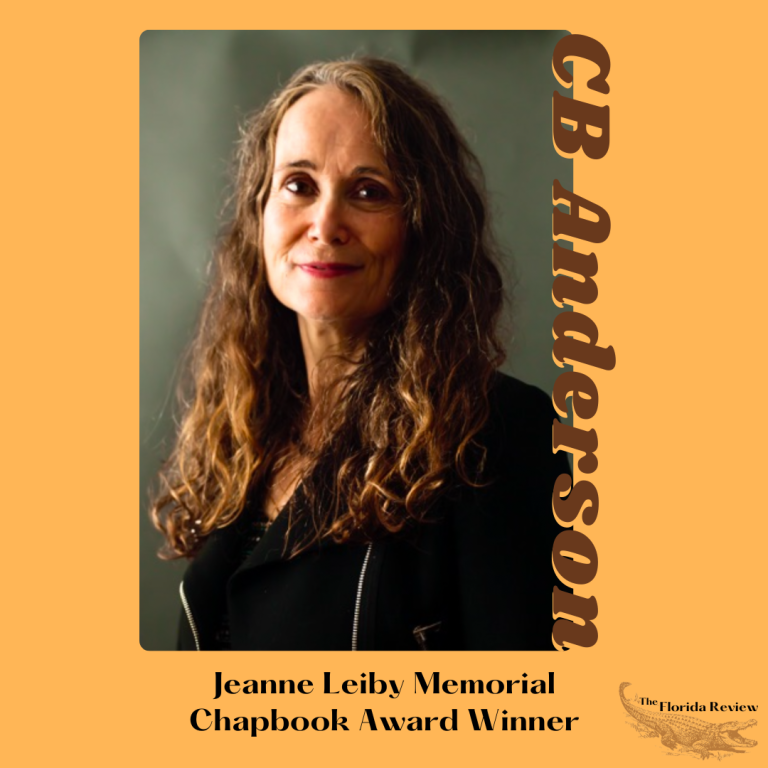 Congratulations to CB Anderson, our 2022-2023 winner of the Jeanne Leiby Memorial Chapbook Award! Her winning chapbook, “Blue Lion Days,” will be published in April 2024.
Congratulations to CB Anderson, our 2022-2023 winner of the Jeanne Leiby Memorial Chapbook Award! Her winning chapbook, “Blue Lion Days,” will be published in April 2024.
Melanie Bishop, a judge of the contest, had this to say about the contest and Anderson’s work:
The seven finalists sent to me by series editor David James Poissant had so much range, I wanted to assign a host of awards: Most Moving, Most Brilliant, Most Rich, Most Inventive, Most Original, Most Surprising. Congratulations to all of the finalists; you are all worthy.
CB Anderson’s Blue Lion Days emerged as the clear winner. From the start, lines like “I was fifteen and getting in trouble for no real reason apart from puberty,” had me trusting Anderson to give it to me straight. But this was more than trust, or feeling I was in such capable hands; this cycle is impeccably well-crafted and unified, with a thumping heart at its center.
These linked stories build on one another, each deepening the portrait of this economically depressed mill town on a river in Maine. As we experience the town—its residents, the paper mill, the river—from the perspectives of several different characters, we are privy to the undercurrents driving each of them, forces seemingly as preordained and irreversible as the current of the river itself. And while some of these lives look bleak—their histories, struggles, disappointments, and defeats—what returns to the surface, again and again, is the notion of resurrection.
Sometimes, even the smell of bread baking lets you know you will survive.
CB Anderson’s work has appeared in The Iowa Review, Narrative, North American Review, Crazyhorse, and elsewhere. Her book Home Now was a 2019 LitHub Fall Preview pick, and a collection River Talk was a Kirkus Best Books of 2014. Awards include the 2022 Winning Writers Tom Howard prize and 2nd place in the Zoetrope: All-Story contest. She lives in Maine with her family.
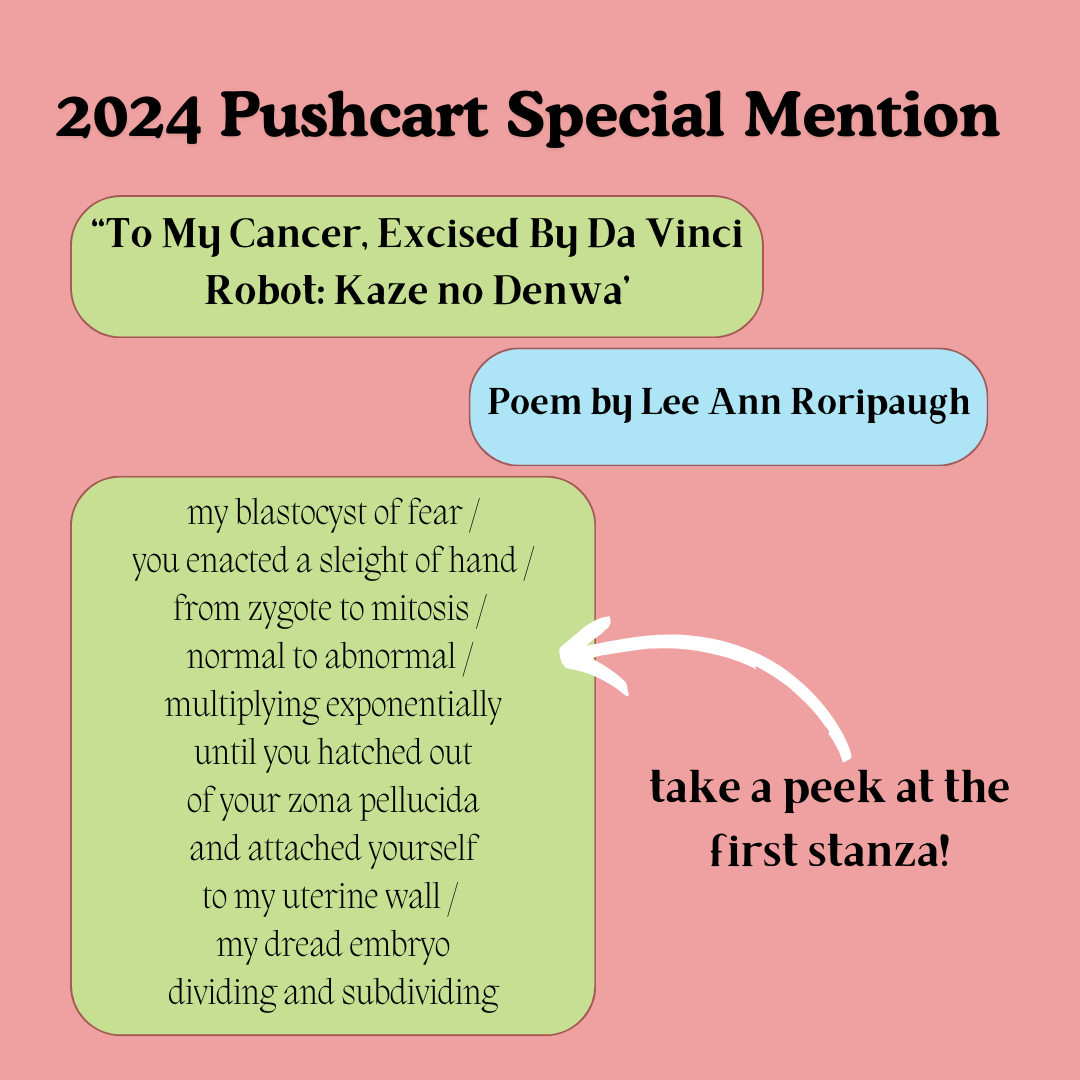 Congrats to Lee Ann Roripaugh for the special mention in the 2024 Pushcart Prize XLVIII Best of the Small Presses! Roripaugh’s poem was originally published in The Florida Review Vol 46.2.
Congrats to Lee Ann Roripaugh for the special mention in the 2024 Pushcart Prize XLVIII Best of the Small Presses! Roripaugh’s poem was originally published in The Florida Review Vol 46.2.
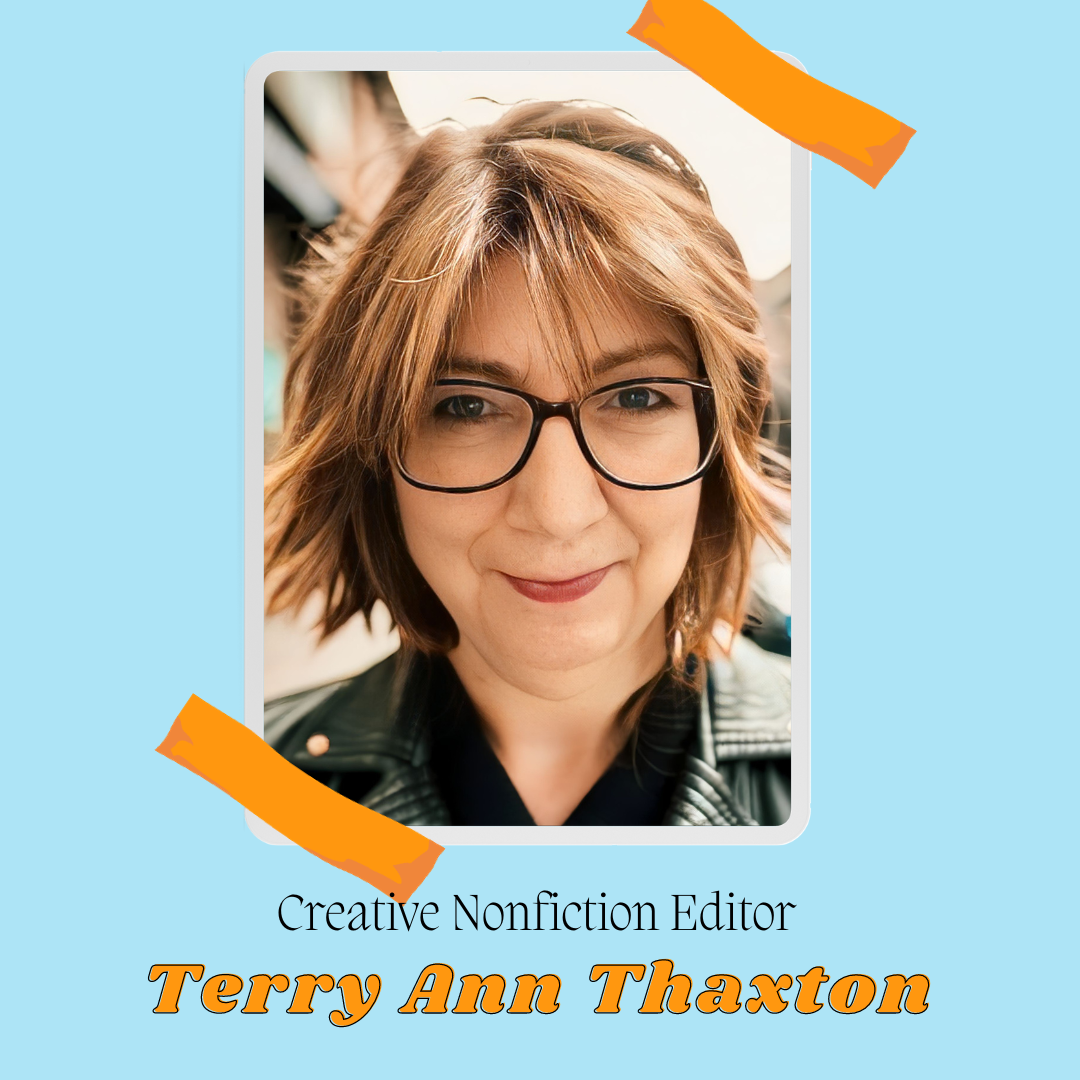 We’re making it official—meet Terry Ann Thaxton, a creative nonfiction editor with The Florida Review. Thaxton joined our team as an editor over the summer, but she’s no stranger to TFR.
We’re making it official—meet Terry Ann Thaxton, a creative nonfiction editor with The Florida Review. Thaxton joined our team as an editor over the summer, but she’s no stranger to TFR. Congratulations to CB Anderson, our 2022-2023 winner of the Jeanne Leiby Memorial Chapbook Award! Her winning chapbook, “Blue Lion Days,” will be published in April 2024.
Congratulations to CB Anderson, our 2022-2023 winner of the Jeanne Leiby Memorial Chapbook Award! Her winning chapbook, “Blue Lion Days,” will be published in April 2024.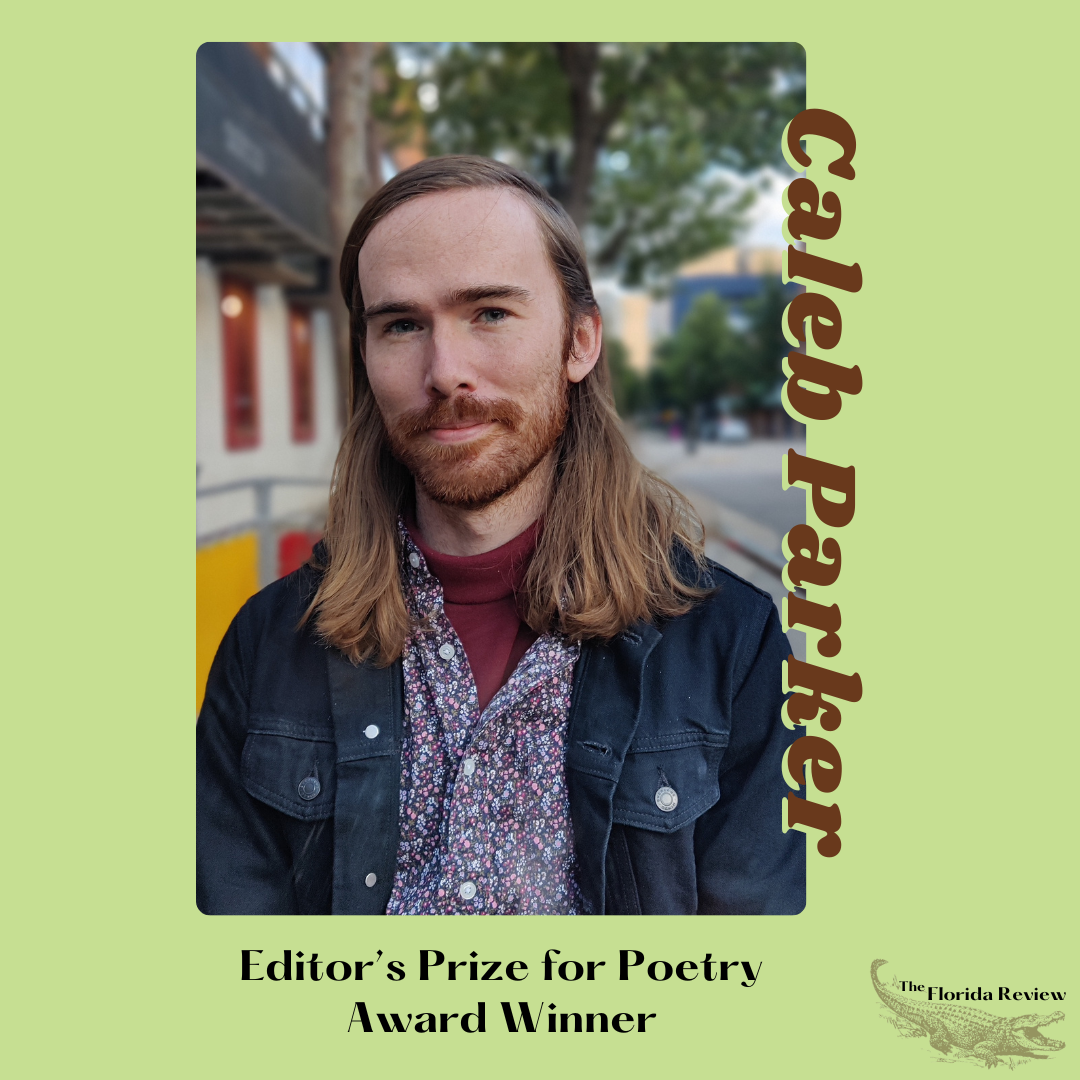
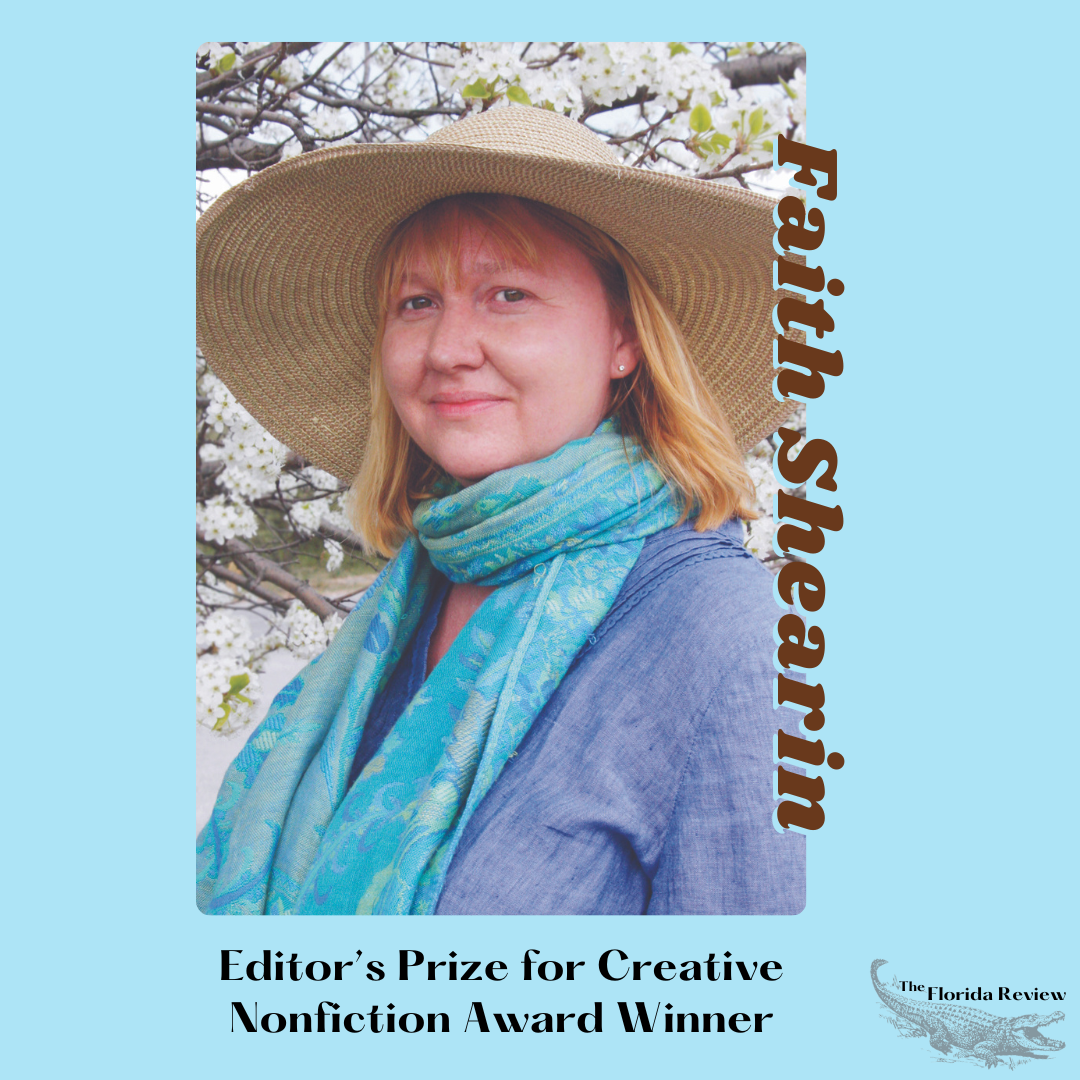
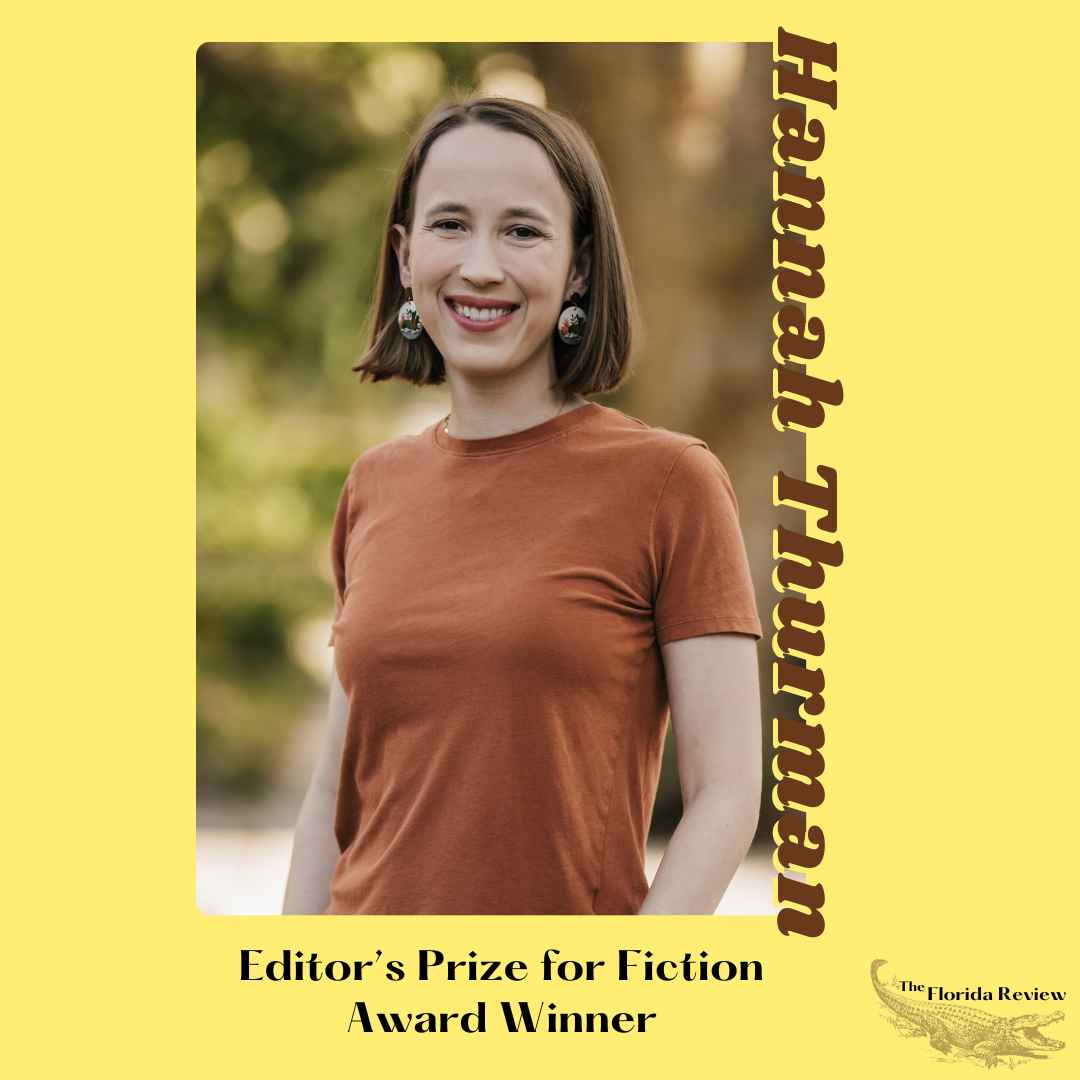
 We are delighted to announce our 2023 Editor’s Prize for Poetry Winner and Finalists! Congrats to: Caleb Parker, Bertha Crombet, Michael Weinstein, and Maggie Yang. All winners receive $1,000 and publication in The Florida Review 48.1, Spring, 2024.Our 2024 contest opens in January. Thank you for supporting The Florida Review!
We are delighted to announce our 2023 Editor’s Prize for Poetry Winner and Finalists! Congrats to: Caleb Parker, Bertha Crombet, Michael Weinstein, and Maggie Yang. All winners receive $1,000 and publication in The Florida Review 48.1, Spring, 2024.Our 2024 contest opens in January. Thank you for supporting The Florida Review!